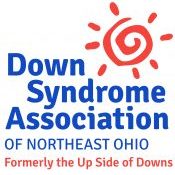What is research?
Research is when a person carefully and systematically studies something to learn new information about it.
Is there research that focuses on people with Down syndrome?
A wide variety of research focuses on many different aspects of Down syndrome. For people with Down syndrome, the impact of research can be seen in the issuing of specific medical and educational guidelines, more inclusion in society, and increased lifespan.
Should I participate in research?
Participating in a research study is one way you can contribute to medical and social advances for people with Down syndrome. The answers to the questions below may help you decide if a particular study is right for you.
What is the purpose of the study?
What do you have to do if you participate in the study?
How much time will the study take?
What are the benefits of participating?
What are the risks of participating?
The risks of participating in a study depend on what the study involves. Taking an anonymous survey about your favorite vegetables has very different risks than undergoing an invasive medical procedure. You should understand the risks of the study before you agree to participate.
How can I learn about research studies that are enrolling?
The National Institutes of Health has created a registry called DS-Connect. One of the aims of DS-Connect is to connect people with Down syndrome and their families to researchers and health care providers.
On a local level, organizations like DSANEO often help advertise research studies through newsletters and local media. Additionally, researchers at the Cleveland Clinic are creating an email list of people who are interested in learning about local research opportunities for people with Down syndrome. If you are interested in being added to the list, please email koenigk@ccf.org.
https://medschool.cuanschutz.edu/linda-crnic-institute
Research Opportunities
All research posted through the Down Syndrome Association of Northeast Ohio has undergone rigorous acceptance standards from their sponsoring institutions including but not limited to review by their IRB committee. Under FDA regulations, an IRB is an appropriately constituted group that has been formally designated to review and monitor biomedical research involving human subjects. In accordance with FDA regulations, an IRB has the authority to approve, require modifications In (to secure approval) or disapprove research.
- Research Participation Opportunity for youth with intellectual disability The Ohio State University Nisonger Center is seeking children/adolescents/young adults with intellectual disability who are willing to participate in the research and complete a newly developed short rating form about behavioral health and give their feedback about the rating form. Learn more HERE
- Are you a parent or caregiver to a child with Down syndrome between the ages of 2 and 6 years old? Researchers at The University of Alabama are looking to better understand the parent-child relationship in relation to stress, child feeding, and eating behaviors. Click HERE to participate!
- How do you feel about participating in research?Researchers at the Cleveland Clinic are asking self-advocates with Down Syndrome and/or caregivers of people with Down Syndrome to take an online survey about participation in research. The survey will help us understand why some people participate in research and why some do not. They are interested in hearing from individuals of all ages and ability levels. To learn more about the survey, please visit: https://redcap.link/downsyndrome
- KidsFirst seeks a detailed classification of autism to enable targeted approaches for care and successful intervention: The KidsFirst approach to classification draws upon your confidential participation in surveys. The data they collect provides a unique opportunity for researchers to understand autism, but the effort must continue to expand to meet the need for more detailed, granular information. KidsFirst is a collaboration led by The Hartwell Foundation with investigators from Stanford School of Medicine, UC Davis MIND Institute, and Case Western Reserve University. Learn more about this study HERE!
- LIFE-DSR: The Longitudinal Investigation for the Enhancement of Down Syndrome Research (LIFE-DSR) is a multi-year, coordinated research study by medical and academic professionals to track and analyze the medical and physical data of 270 adults with Down syndrome. Learn more about this observational study HERE!
- Trial-Ready Cohort-Down Syndrome: A new study seeking answers to the link between Alzheimer’s disease and Down syndrome is recruiting volunteers in Northeast Ohio. Because Alzheimer’s disease affects people with Down syndrome at a much earlier age than those with the syndrome, researchers at University Hospitals Cleveland/CWRU are looking for at least 120 volunteers ages 25 to 55 to participate in the Trial Ready Cohort-Down Syndrome (TRC-DS), a new international study funded by the National Institutes of Health, fast-tracking people with Down syndrome into Alzheimer’s studies. To learn more about the Northeast Ohio study, click HERE.
- Parental Vaccine Hesitancy for Adolescents with Down syndrome: Participate in a research study by Kent State University and Akron Children’s Hospital that involves completing a survey. Researchers to learn about the beliefs parents of adolescents with Down syndrome have about vaccines. Participation typically takes 20 minutes. For more information or to complete the survey, please click here
- Evaluation of the Efficacy, Tolerability and Safety of Memantine Hydrochloride on Enhancing the Cognitive Abilities of Adolescents and Young Adults with Down Syndrome: A team of medical doctors and psychologists at the Case Western Reserve University, University Hospitals and the Cleveland Clinic is investigating the effects of memantine on individuals with Down syndrome between the ages of 15 and 32. To learn more about the study and how to participate, click Memantine Study flyer.
- Family Factors and the Quality of Life in Children with Down Syndrome:The purpose of this study is to learn about how parents view family functioning and quality of life of children with Down syndrome. Learn more
- ABC-DS Study: The University of Pittsburgh Medical Center is seeking adults at least 25 years of age with Down syndrome to participate in this research study focused on Down syndrome and Alzheimer’s Disease. Learn more here-ABC-DS Research Study

